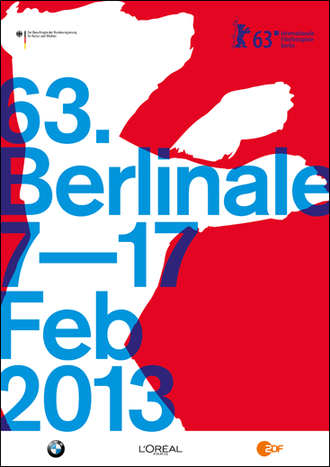
Watch out, the bears are coming!
Published on
Hey, it’s already next week – 63rd Berlinale film festival’s hustle of films, exhibitions, press conferences, workshops, handshakes, camera flashes, flickering of projectors and lights going off and off again.
On Potsdamer Platz the empty tickets booths are already waiting for film enthusiasts of one sort and the red carpets – to be rolled out for another, and the fresh, out of print programme brochures await your notes, dog-ears and markings.
The festival committee board selected 400 films from more than 6000 applications. Wieland Speck, the director of Panorama section, alone viewed reportedly close to 1000 films in order to pick the lucky 52 for Berlinale’s biggest section. The festival goer too is now confronted with as difficult a task of skimming the rich programme to what would be worth the time of standing the lines and sitting the darkness. The good news are that Café Babel’s multilingual team will be reporting directly from the scene in the effort to make the selection task easier and more informed. As a matter of fact, we already started previewing.
According to the festival’s ever jolly director Dieter Kosslick press conference note on Monday, this years Competition section will try to make a balancing act between big commercial productions and contributions from the independent film scene that becomes increasingly more active, makes films quicker and more of them. Women, both as filmmakers and protagonists, will constitute a guiding thread of this Competition. That emancipatory trends are a core of Berlinale’s self-identity as a film festival is not very surprising. Facts on the ground are always much more inspiring. For example the fact that for the first time in its history, the majority of Berlinale’s jury – four out of seven jury members – are women.
Berlin’s traditional role as the gateway between East and West, even though this polarity may sound outdated, still brings a great number of films from Central and Eastern Europe and Asia to festivals screens.
The above mentioned bear-less but trend-setting Panorama section allots a high portion of its selection this year to brave independent cinema from the Americas. According to Speck, there are positive signs that the US film scene has finally recovered from the “airless Bush era” and we can now enjoy its comeback and a fresh spirit of arrogance and self-criticism. Latin and South Americas also produced a filmic abundance and an effort was made for it to be reflected in the programme. Middle East remains to be one of the central topics of Panorama. The recent elections in Israel create some hope of improvement for the deadlocked situation in Palestine which is in focus of many films. Another focal point of Panorama, the examination the consequences of the lingering economic crisis and the fears of the middle class, also occupies the attention of Forum. Being Berlinale’s most daring section, Forum is dedicated to the cinematic productions which lie in the overlapping area between film and other visual and performative arts and pushes the limits of the formal conventional borders of film as a medium. Being maybe the most challenging section, it does usually succeed avoiding to fall into the trap of the museum-like and sterile abstraction mysticism and remains devoted to giving new forms of expression to relevant ongoing issues. Forum's director Christoph Terhechte announced that during this Berlinale many important contribution will be coming from Europe and especially from countries that are recently mentioned mostly in the context of the economic crisis.
Commemorating Hitler’s rise to power 80 years ago is one of the reasons to dedicate a Homage to the French documentary film director, author and journalist Claude Lanzmann and award him the Honorary Golden Bear. Lanzmann is mostly known for his renowned monumental documentary on Holocaust, which is still one of the foremost influential films on the subject. Another reason for the retrospective is an opportunity to show most of his films in digitally restored format and to prevent his paramount work from sinking into oblivion.

Café Babel’s editorial team in Berlin will abstain from the auratic question à la Bild, which superstars are coming to Berlinale this year, at least for now. In a city, where the alternative becomes a kind of a strong, almost conformist obligation, answering such a question becomes structurally impossible, as there is no consensus about the definition of a star. “But what about George Clooney?” asked a curious journalist referring to the current filming project in Babelsberg. “He was not invited”, Kosslick nonchalantly replied, “because he is already here”.



